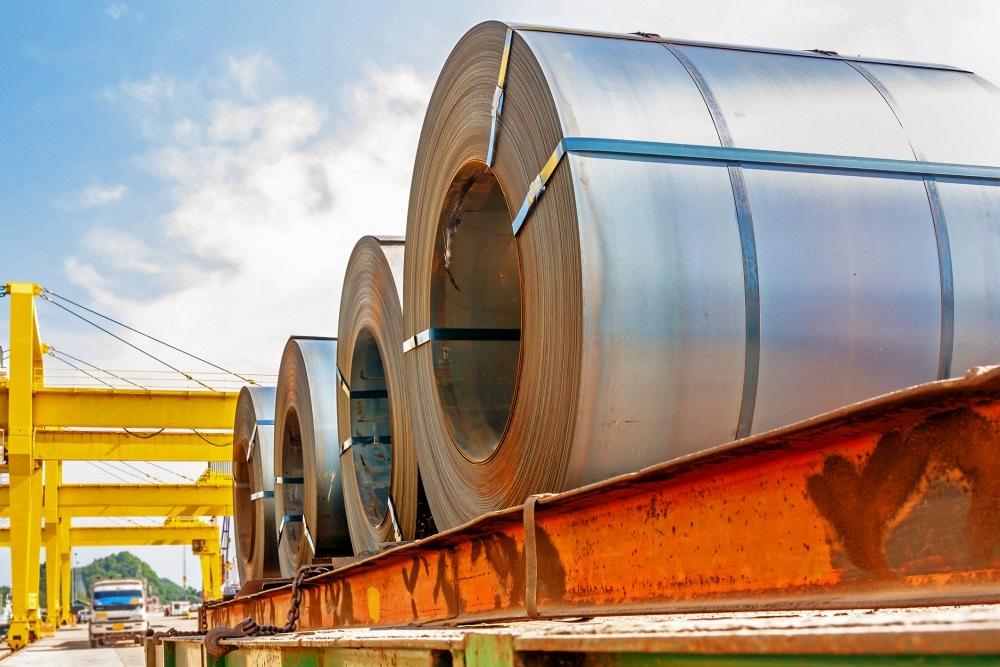Contributing Writer
- FMA
- The Fabricator
- FABTECH
- Canadian Metalworking
Categories
- Additive Manufacturing
- Aluminum Welding
- Arc Welding
- Assembly and Joining
- Automation and Robotics
- Bending and Forming
- Consumables
- Cutting and Weld Prep
- Electric Vehicles
- En Español
- Finishing
- Hydroforming
- Laser Cutting
- Laser Welding
- Machining
- Manufacturing Software
- Materials Handling
- Metals/Materials
- Oxyfuel Cutting
- Plasma Cutting
- Power Tools
- Punching and Other Holemaking
- Roll Forming
- Safety
- Sawing
- Shearing
- Shop Management
- Testing and Measuring
- Tube and Pipe Fabrication
- Tube and Pipe Production
- Waterjet Cutting
Industry Directory
Webcasts
Podcasts
FAB 40
Advertise
Subscribe
Account Login
Search
Little opposition emerges to upgrading of tariff investigations
The only dissension comes from companies hiding behind law firms
- By Stephen Barlas
- UPDATED October 9, 2020
- October 19, 2020

Little opposition is evident as President Donald Trump's administration wants to make it easier and quicker to impose and collect antidumping and countervailing duties. Getty Images
President Donald Trump’s tariffs on steel and aluminum have been tough enough on the metal fabrication sector, but now the administration wants to make it easier and quicker to impose and collect antidumping and countervailing duties (AD/CVD).
A consortium of three law firms representing unnamed domestic importers in a variety of industries have complained to the Department of Commerce’s International Trade Administration (ITA) that the proposed changes “paint American importers as nefarious and crooked.” The department has been clear in its objective to “enforce the AD/CVD laws rigorously, and to aggressively pursue parties that seek to skirt them.”
The changes proposed by the ITA—they are technical and significant—would allow the DOC to complete faster, more thorough AD/CVD investigations. The reforms have been widely applauded by a range of sellers of steel products to U.S. fabricators. A few of the supporters are Nucor, U.S. Steel, the American Iron and Steel Institute, the Rebar Trade Action Coalition, and Global Specialty Metals.
U.S. Steel argued that exporters of steel products to the U.S. send goods here at subsidized prices, even though they do not sell those same products domestically. The company cited previous, recent DOC investigations in which importers have circumvented duties in such product categories as oil country tubular goods, hot-rolled carbon steel flat products, and cold-rolled steel flat products.
Opponents of the changes, based on the comments the DOC has received, are sparse. Neither trade groups nor individual companies in the auto, energy, appliance, housing, and other U.S.-based manufacturing sectors have raised a peep in protest. The only indication that importers would be disadvantaged comes from the comments of a consortium of law firms. Those lawyers did not respond to queries asking for the identities of any of the “U.S.” importers they represent.
Indicative of the “below-the-radar” aspect of this proposed rule is that there isn’t a single comment from any member of Congress, Republican or Democrat. That and the public’s lack of complaints would seem to indicate that the DOC’s proposed changes are a done deal.
“We agree that this exercise of Commerce’s discretion to take appropriate enforcement measures to ensure the effectiveness of its AD/CVD orders is reasonable and balanced, and this will effectuate its authority to administer AD/CVD laws by preventing duty evasion and circumvention, while simultaneously mitigating any potential harm to importers who may be acting in good faith,” said officials from Globe Specialty Metals, the U.S. subsidiary of a British firm, in a press release.
Apprenticeship Bill Falters
What would have been a bipartisan effort by a House committee to improve apprenticeship programs faltered when House Democrats rebuffed a plea by Republicans to extend federal funding to Industry Recognized-Apprenticeship Programs (IRAPs). The Trump administration has boosted IRAPs with the Department of Labor (DOL) finalizing a rule last March that opened the door for independent-Standards-Recognition-Entities to certify apprentice programs developed by companies and industries, but which are not registered by the DOL.
Registered apprenticeship programs have been the only recipients of federal workforce grants according to federal law. But employer programs not registered are increasingly important. Rep. Virginia Foxx, R-N.C., said during the House Education and Labor Committee vote on Sept. 24 on the National Apprenticeship Act of 2020 (H.R. 8294) that 252,000 Americans graduated from apprenticeship programs in fiscal 2019 but only 81,000 from registered programs.
The bill passed by a vote of 26-16 with only Democrats voting for it. It would amend the existing national apprenticeship program to include both pre-apprenticeships and youth apprenticeships, while also defining guidelines for registered apprenticeship programs. To fund the provisions under the proposal, it authorizes over $3 billion between fiscal years 2021 and 2025. IRAPs still do not qualify for federal funds.
subscribe now

The Fabricator is North America's leading magazine for the metal forming and fabricating industry. The magazine delivers the news, technical articles, and case histories that enable fabricators to do their jobs more efficiently. The Fabricator has served the industry since 1970.
start your free subscriptionAbout the Author

Stephen Barlas
- Stay connected from anywhere

Easily access valuable industry resources now with full access to the digital edition of The Fabricator.

Easily access valuable industry resources now with full access to the digital edition of The Welder.

Easily access valuable industry resources now with full access to the digital edition of The Tube and Pipe Journal.
- Podcasting
- Podcast:
- The Fabricator Podcast
- Published:
- 04/16/2024
- Running Time:
- 63:29
In this episode of The Fabricator Podcast, Caleb Chamberlain, co-founder and CEO of OSH Cut, discusses his company’s...
- Trending Articles
Tips for creating sheet metal tubes with perforations

Are two heads better than one in fiber laser cutting?

Supporting the metal fabricating industry through FMA

JM Steel triples capacity for solar energy projects at Pennsylvania facility

Omco Solar opens second Alabama manufacturing facility

- Industry Events
16th Annual Safety Conference
- April 30 - May 1, 2024
- Elgin,
Pipe and Tube Conference
- May 21 - 22, 2024
- Omaha, NE
World-Class Roll Forming Workshop
- June 5 - 6, 2024
- Louisville, KY
Advanced Laser Application Workshop
- June 25 - 27, 2024
- Novi, MI


























